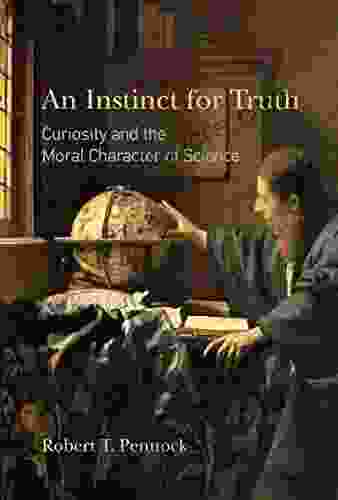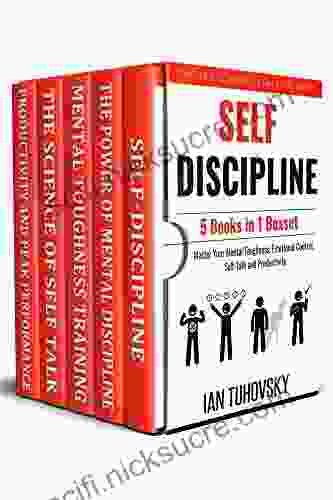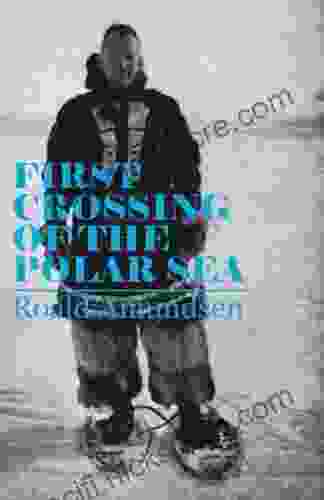An Instinct For Truth: Deciphering the Nature of Scientific Inquiry and Ethical Decision-Making

Humans have an innate curiosity to understand the world around them. This curiosity drives us to ask questions, explore our surroundings, and seek knowledge. In the realm of science, this curiosity has led to countless discoveries and advancements that have revolutionized our understanding of the universe and our place within it. However, the pursuit of knowledge is not without its challenges. Scientists must grapple with the complexities of the natural world, the limitations of human perception and understanding, and the ethical implications of their work. In this article, we will explore the nature of scientific inquiry and ethical decision-making, examining the role of instinct, reason, and values in shaping our understanding of the world and our guiding principles.
The Nature of Scientific Inquiry
Scientific inquiry is a systematic and organized process for gathering and analyzing evidence to gain knowledge about the natural world. It is based on the premise that the universe operates according to certain laws and principles that can be uncovered through observation, experimentation, and logical reasoning. The scientific method, a cornerstone of scientific inquiry, provides a structured approach for testing hypotheses, developing theories, and drawing s.
At the heart of scientific inquiry is the concept of falsifiability. Scientists formulate hypotheses that can be tested and potentially disproven through empirical evidence. This process of hypothesis testing allows scientists to refine their understanding of the world and discard theories that do not hold up to scrutiny. The ability to falsify hypotheses distinguishes scientific inquiry from other forms of knowledge acquisition, such as philosophy or religion, which may rely on untestable beliefs or axioms.
4.4 out of 5
| Language | : | English |
| File size | : | 1106 KB |
| Text-to-Speech | : | Enabled |
| Screen Reader | : | Supported |
| Enhanced typesetting | : | Enabled |
| X-Ray | : | Enabled |
| Word Wise | : | Enabled |
| Print length | : | 556 pages |
The Role of Intuition and Instinct in Scientific Discovery
While the scientific method emphasizes logical reasoning and empirical evidence, the role of intuition and instinct cannot be overlooked. Many scientists have reported experiences of sudden insights or "aha" moments that led to groundbreaking discoveries. These experiences suggest that our subconscious mind may play a role in processing information and generating creative solutions.
Intuition, often described as a gut feeling or inner knowing, can guide scientists toward promising avenues of research or help them interpret complex data. While intuition alone is not sufficient for making scientific claims, it can serve as a valuable starting point for further investigation. By embracing both rational and intuitive thinking, scientists can expand their cognitive toolkit and increase their chances of making significant contributions to the field.
Ethical Considerations in Scientific Research
The pursuit of scientific knowledge carries with it a profound ethical responsibility. Scientists have the power to shape our understanding of the world and influence the development of new technologies that can have far-reaching consequences. It is essential that scientists conduct their research with integrity, transparency, and a deep sense of ethical Verpflichtung.
One of the primary ethical considerations in scientific research is the principle of beneficence. Scientists have a duty to minimize harm and maximize benefits to human subjects and the environment. This includes obtaining informed consent from participants in research studies, ensuring the safety of research procedures, and protecting the privacy of personal data.
Another important ethical consideration is the principle of justice. Scientists have a responsibility to ensure that the benefits and burdens of scientific research are fairly distributed across society. This means addressing issues such as equitable access to healthcare, research funding, and the inclusion of diverse perspectives in scientific decision-making.
The Importance of Values in Ethical Decision-Making
Values play a crucial role in shaping ethical decision-making in scientific research. Scientists' values influence their priorities, their choice of research topics, and their interpretation of data. For example, a scientist who values environmental sustainability may prioritize research on renewable energy sources, while a scientist who values human health may focus on developing new medical treatments.
It is important to recognize that values are not always objective or universal. They are often shaped by personal experiences, cultural norms, and societal beliefs. This diversity of values can lead to different interpretations of ethical issues and varying opinions on the appropriate course of action.
Scientists have a responsibility to be aware of their own values and to consider how they may influence their research and decision-making. They should also be open to engaging in dialogue with colleagues and stakeholders who hold different values, in order to foster mutual understanding and reach ethically sound s.
The pursuit of scientific knowledge is a complex and multifaceted endeavor that requires a combination of rational thinking, intuitive insights, and ethical decision-making. By embracing both the logical and the intuitive, and by carefully considering the ethical implications of their work, scientists can make significant contributions to our understanding of the world while upholding the highest standards of integrity and responsibility.
Ultimately, the instinct for truth that drives scientific inquiry is not merely a matter of intellectual curiosity. It is a moral imperative to seek knowledge, understand the world, and use that knowledge for the betterment of humanity and the planet we inhabit.
4.4 out of 5
| Language | : | English |
| File size | : | 1106 KB |
| Text-to-Speech | : | Enabled |
| Screen Reader | : | Supported |
| Enhanced typesetting | : | Enabled |
| X-Ray | : | Enabled |
| Word Wise | : | Enabled |
| Print length | : | 556 pages |
Do you want to contribute by writing guest posts on this blog?
Please contact us and send us a resume of previous articles that you have written.
 Fiction
Fiction Non Fiction
Non Fiction Romance
Romance Mystery
Mystery Thriller
Thriller SciFi
SciFi Fantasy
Fantasy Horror
Horror Biography
Biography Selfhelp
Selfhelp Business
Business History
History Classics
Classics Poetry
Poetry Childrens
Childrens Young Adult
Young Adult Educational
Educational Cooking
Cooking Travel
Travel Lifestyle
Lifestyle Spirituality
Spirituality Health
Health Fitness
Fitness Technology
Technology Science
Science Arts
Arts Crafts
Crafts DIY
DIY Gardening
Gardening Petcare
Petcare Tony Hansen
Tony Hansen Charmaine Mckissock
Charmaine Mckissock John Sabino
John Sabino Cheryl Marlene
Cheryl Marlene Borja Loma Barrie
Borja Loma Barrie Bradley Mayhew
Bradley Mayhew Pedro Urvi
Pedro Urvi Priscilla T Brown
Priscilla T Brown Jodi Magness
Jodi Magness Kelly Koerner
Kelly Koerner Mantak Chia
Mantak Chia Jennifer L Lopez
Jennifer L Lopez Shane Burcaw
Shane Burcaw Iskcon Revival Movement
Iskcon Revival Movement Joseph Campbell
Joseph Campbell Robert Courland
Robert Courland Paddy Ashdown
Paddy Ashdown John V Petrocelli
John V Petrocelli Jody Hedlund
Jody Hedlund James Kaiser
James Kaiser Fred Medina
Fred Medina Antti Laaksonen
Antti Laaksonen Jacob Paul Patchen
Jacob Paul Patchen Richard J Foster
Richard J Foster Philip Slayton
Philip Slayton Asaf Rozanes
Asaf Rozanes Robert J Sternberg
Robert J Sternberg Bob Brister
Bob Brister Jessica Holsman
Jessica Holsman Sharon M Ravitch
Sharon M Ravitch Sherman Alexie
Sherman Alexie Randall M Rueff
Randall M Rueff Christie Aschwanden
Christie Aschwanden Matthias Biehl
Matthias Biehl Lynn Rosen
Lynn Rosen James Duggan
James Duggan Kayvan Shokrollahi
Kayvan Shokrollahi House Of Talent
House Of Talent Bob Gaines
Bob Gaines Ziya Tong
Ziya Tong Mathew Tekulsky
Mathew Tekulsky Megan Miller
Megan Miller Michael R Canfield
Michael R Canfield Silvan S Schweber
Silvan S Schweber Matt Harrison
Matt Harrison Bruce Kershner
Bruce Kershner Sheila Willcox
Sheila Willcox Ceara Comeau
Ceara Comeau Frank Giampaolo
Frank Giampaolo Sleiman Azizi
Sleiman Azizi Gordon H Chang
Gordon H Chang Detlev Piltz
Detlev Piltz Lola Glass
Lola Glass Raymond Barrett
Raymond Barrett Daniel Isberner
Daniel Isberner Hugh Marriott
Hugh Marriott Charles H Townes
Charles H Townes Joe Tasker
Joe Tasker Connecticut Forest And Park Association
Connecticut Forest And Park Association Jane Watkins
Jane Watkins David Sammel
David Sammel Carrie Rogers Whitehead
Carrie Rogers Whitehead Marc P Steinberg
Marc P Steinberg Lori Foster
Lori Foster Jayne Storey
Jayne Storey Nicole Howard
Nicole Howard Robert T Pennock
Robert T Pennock Stephanie J Scott
Stephanie J Scott Mahzarin R Banaji
Mahzarin R Banaji James Morgan Ayres
James Morgan Ayres Taste Of Home
Taste Of Home Michelle Garnett
Michelle Garnett Lawrence M Krauss
Lawrence M Krauss Chantal Sicile Kira
Chantal Sicile Kira Michele Riva
Michele Riva George Heineman
George Heineman Karen George
Karen George Jerry A Coyne
Jerry A Coyne Kazumi Tabata
Kazumi Tabata National Fastpitch Coaches Association
National Fastpitch Coaches Association Loralee Leavitt
Loralee Leavitt Jennifer Pastiloff
Jennifer Pastiloff Bob Harig
Bob Harig Curt Sampson
Curt Sampson Sigmund Freud
Sigmund Freud Monica Mcgoldrick
Monica Mcgoldrick Brad Walker
Brad Walker Kristin Plain
Kristin Plain Diane Ehrensaft
Diane Ehrensaft Haider Warraich
Haider Warraich Derek Cheung
Derek Cheung Eva Ibbotson
Eva Ibbotson Elizabeth Hay
Elizabeth Hay Laurence D Houlgate
Laurence D Houlgate Simeon Wright
Simeon Wright Maia Weinstock
Maia Weinstock Lee Mcintyre
Lee Mcintyre Rick Sapp
Rick Sapp Second Edition New Edition Updated Revised...
Second Edition New Edition Updated Revised... Kevin Ticen
Kevin Ticen Language Guru
Language Guru Craig Callender
Craig Callender Jim Wilson
Jim Wilson Rachel Burgess
Rachel Burgess Gao Yisheng
Gao Yisheng Bob Miller
Bob Miller Russell Bryant
Russell Bryant Peter N Peregrine
Peter N Peregrine Carol Mccloud
Carol Mccloud Ronald D Mcelroy
Ronald D Mcelroy Nando Parrado
Nando Parrado David Wescott
David Wescott Tom Bisio
Tom Bisio Rand Cardwell
Rand Cardwell David Seidman
David Seidman Lieven Vandenberghe
Lieven Vandenberghe Mark W Gaither
Mark W Gaither Tiffany Vincent
Tiffany Vincent Joe Hendershott
Joe Hendershott Harmon Cooper
Harmon Cooper Pamela A Hays
Pamela A Hays Huan Yang
Huan Yang Mark Rashid
Mark Rashid Guy Gavriel Kay
Guy Gavriel Kay Maggie Smith
Maggie Smith Felix Bittmann
Felix Bittmann Darwin V Ellis
Darwin V Ellis John Andrisani
John Andrisani Lyn Millner
Lyn Millner Linda Fairley
Linda Fairley Dan Gable
Dan Gable Patrisia Gonzales
Patrisia Gonzales Robert Farris Thompson
Robert Farris Thompson Dr Ray Makar
Dr Ray Makar Tracy Deonn
Tracy Deonn Zach Alexander
Zach Alexander Lou Kasischke
Lou Kasischke Roger Kopanycia
Roger Kopanycia Candace Walsh
Candace Walsh Rinoa
Rinoa Theodore Dalrymple
Theodore Dalrymple Robert T Kiyosaki
Robert T Kiyosaki Julia Englund Strait Phd
Julia Englund Strait Phd Luisa Magarian
Luisa Magarian Timothy Alberino
Timothy Alberino Scott Wilson
Scott Wilson Peter Ralston
Peter Ralston James Mooney
James Mooney Matt Davids
Matt Davids Fiona Danks
Fiona Danks Django Wexler
Django Wexler Lily Field
Lily Field Paul Orland
Paul Orland Steven Trustrum
Steven Trustrum Jack Whyte
Jack Whyte Martin Gardner
Martin Gardner Sylvia Mercedes
Sylvia Mercedes Jimmy Cornell
Jimmy Cornell William Pitts
William Pitts Robert Fisher
Robert Fisher Blessing Agunloye
Blessing Agunloye Smart Reads
Smart Reads Jennifer Mccully
Jennifer Mccully Cindy C Bennett
Cindy C Bennett Bob Morris
Bob Morris David Franklin
David Franklin Jeannie Tyrrell
Jeannie Tyrrell 1st Ed 2019 Edition Kindle Edition
1st Ed 2019 Edition Kindle Edition John Mccollister
John Mccollister Dr Aviva Legatt
Dr Aviva Legatt Culture Smart
Culture Smart Monica Gribben
Monica Gribben Melissa Gomes
Melissa Gomes Catherine Ryan Gregory
Catherine Ryan Gregory Summer Batte
Summer Batte Helen Corcoran
Helen Corcoran Alan Anderson
Alan Anderson Hecateus Apuliensis
Hecateus Apuliensis Tania Marshall
Tania Marshall Mark Vonnegut
Mark Vonnegut Three Over Eight Learning
Three Over Eight Learning Diane Ravitch
Diane Ravitch Nate Schweber
Nate Schweber Michael Kulikowski
Michael Kulikowski Jill Margaret Shulman
Jill Margaret Shulman Jonathan Howard Md
Jonathan Howard Md Fr Vincent Lampert
Fr Vincent Lampert Mones Abu Asab
Mones Abu Asab Teresa Denton
Teresa Denton Herbert Wolverson
Herbert Wolverson Gary Letcher
Gary Letcher N L Mclaughlin
N L Mclaughlin John Skinner
John Skinner Kathryn Mcelroy
Kathryn Mcelroy Tao Le
Tao Le Derek Johnson
Derek Johnson Jason R Briggs
Jason R Briggs Alan Pearce
Alan Pearce Tracy Moore
Tracy Moore Philip Kramer
Philip Kramer Becca Anderson
Becca Anderson Charles Johnson
Charles Johnson Steve Leonard
Steve Leonard Haruki Murakami
Haruki Murakami Karen Ehman
Karen Ehman Dr Barbara Sorrels
Dr Barbara Sorrels Elena Kryuchkova
Elena Kryuchkova Brittany Noelle
Brittany Noelle Ross Mccluney
Ross Mccluney Fodor S Travel Guides
Fodor S Travel Guides Jim Thompson
Jim Thompson Tehlor Kay Mejia
Tehlor Kay Mejia Nikki Glandon
Nikki Glandon Wendy Suzuki
Wendy Suzuki Tom Mccoy
Tom Mccoy L Waxy Gregoire
L Waxy Gregoire Marc Silver
Marc Silver Josephine Diebitsch Peary
Josephine Diebitsch Peary Jared Hargrave
Jared Hargrave Cecilia Chrapkowska
Cecilia Chrapkowska Dan Wowak
Dan Wowak Stephen Armstrong
Stephen Armstrong Mami Wata
Mami Wata Elena Lawson
Elena Lawson Mary J Macleod
Mary J Macleod Richard Grant
Richard Grant Norm Flayderman
Norm Flayderman Eric R Dodge
Eric R Dodge James Oseland
James Oseland Katherine A Dettwyler
Katherine A Dettwyler Philip A Moore
Philip A Moore Scott Waldie
Scott Waldie Larry Pardey
Larry Pardey Barry Lewis
Barry Lewis J M Hofer
J M Hofer Bill Nowlin
Bill Nowlin Lynn A Struve
Lynn A Struve Lynn E Ponton
Lynn E Ponton Tobias Macey
Tobias Macey Karen Gershowitz
Karen Gershowitz Susanna Heli
Susanna Heli Art Smith
Art Smith Jack Cavanaugh
Jack Cavanaugh Christian Smith
Christian Smith Brian Zepka
Brian Zepka John Horgan
John Horgan Brendan Donley
Brendan Donley Jimmy Roberts
Jimmy Roberts Ricardo Pompa
Ricardo Pompa Oluwatosin Adebanjo Ore
Oluwatosin Adebanjo Ore Serena Williams
Serena Williams Julie Dubrouillet
Julie Dubrouillet Terry Mcmillan
Terry Mcmillan Daniel Kahneman
Daniel Kahneman Sergey K Aityan
Sergey K Aityan Sevki Kuruoglu
Sevki Kuruoglu Shaana Berman
Shaana Berman Carlo Zen
Carlo Zen Selma H Fraiberg
Selma H Fraiberg Julie Kratz
Julie Kratz Collegiate Learning
Collegiate Learning Rob Walker
Rob Walker Tiffany Loggins Psyd
Tiffany Loggins Psyd 1st Edition Kindle Edition
1st Edition Kindle Edition Staff Of The Harvard Crimson
Staff Of The Harvard Crimson David Cockburn
David Cockburn David L Cook
David L Cook Bruce Sutherland
Bruce Sutherland Carol A Dahir
Carol A Dahir George M Church
George M Church Jennifer Boyle
Jennifer Boyle Richard Williams
Richard Williams Bob Meehan
Bob Meehan Jessica Mayer Koren
Jessica Mayer Koren 1st Ed 2021 Edition Kindle Edition
1st Ed 2021 Edition Kindle Edition Richard Headstrom
Richard Headstrom Brian Libby
Brian Libby Martin Toms
Martin Toms Richard Bach
Richard Bach Malcolm Williams
Malcolm Williams Nfhs
Nfhs Deirdre A Scaggs
Deirdre A Scaggs Janet Evanovich
Janet Evanovich Rod Baker
Rod Baker David Christian
David Christian Paul Bellow
Paul Bellow James Lovegrove
James Lovegrove Brook Waters
Brook Waters Jacqueline Kelleher
Jacqueline Kelleher Daniel Friebe
Daniel Friebe James Atkinson
James Atkinson Bradley Garrett
Bradley Garrett Charles Hooton
Charles Hooton Lewis Howes
Lewis Howes Nick Muxlow
Nick Muxlow Jeff Carreira
Jeff Carreira Robin Moore
Robin Moore Katherine Roberts
Katherine Roberts Ian Tuhovsky
Ian Tuhovsky Rohan Agarwal
Rohan Agarwal Robert Young Pelton
Robert Young Pelton Jason Brown
Jason Brown Karen Le Billon
Karen Le Billon Michael Hoy
Michael Hoy Cliff Jacobson
Cliff Jacobson Kim Heldman
Kim Heldman Emma Fick
Emma Fick David Mayer
David Mayer Pat Harvey
Pat Harvey James R Evans
James R Evans Phillip Stephen Schulz
Phillip Stephen Schulz Logan Thompson
Logan Thompson Ed Gruver
Ed Gruver Doris Pilkington
Doris Pilkington Steven A Finkler
Steven A Finkler Julia Shaw
Julia Shaw Dave Pine
Dave Pine Mary Beard
Mary Beard Ted Kerasote
Ted Kerasote Roland Nyns
Roland Nyns Sifu Slim
Sifu Slim Sacha Koborsi Tadros
Sacha Koborsi Tadros Jennie Naidoo
Jennie Naidoo Bobbi Conner
Bobbi Conner Diondre Mompoint
Diondre Mompoint N M J Woodhouse
N M J Woodhouse Jakub Marian
Jakub Marian Ruth M Tappen
Ruth M Tappen Mia Reyes
Mia Reyes Sandra Brown
Sandra Brown Marion Zimmer Bradley
Marion Zimmer Bradley Francis Jonah
Francis Jonah Lianna Marie
Lianna Marie Jack Henderson
Jack Henderson Don Currie
Don Currie Michael Inden
Michael Inden Lisa Mckay
Lisa Mckay Immigration Consult
Immigration Consult Paula Petrella
Paula Petrella Peter Nabokov
Peter Nabokov William R Miller
William R Miller Angela Stevens
Angela Stevens Camille Soulier
Camille Soulier Elizabeth Bishop
Elizabeth Bishop Yaron Seidman
Yaron Seidman Peter Byrne
Peter Byrne 1st Ed 2020 Edition Kindle Edition
1st Ed 2020 Edition Kindle Edition Matthew Cronin
Matthew Cronin Graham Denton
Graham Denton Grace Elizabeth Hale
Grace Elizabeth Hale Bob Thomas
Bob Thomas Daphne Adler
Daphne Adler Tim Swanwick
Tim Swanwick Bob Forman
Bob Forman Michael Loynd
Michael Loynd Tom Billinge
Tom Billinge Luke Jackson
Luke Jackson Fran Davis
Fran Davis Luke Humphrey
Luke Humphrey Bob Motley
Bob Motley Stuart Firestein
Stuart Firestein Bridie Gallagher
Bridie Gallagher Jennifer Niven
Jennifer Niven Nurse Academy
Nurse Academy Kenneth C Roebuck
Kenneth C Roebuck Jim Murphy
Jim Murphy Su Ad Abdul Khabeer
Su Ad Abdul Khabeer Joni Levine
Joni Levine Lowell Skoog
Lowell Skoog Rachel Marie Martin
Rachel Marie Martin Theodore Gray
Theodore Gray George G Morgan
George G Morgan Ed Viesturs
Ed Viesturs Joanna Breyer
Joanna Breyer Kindle Edition
Kindle Edition Cal Pater
Cal Pater William Shakespeare
William Shakespeare Mark E Johnson
Mark E Johnson Bill Nason
Bill Nason Xiran Jay Zhao
Xiran Jay Zhao Kiera Cass
Kiera Cass Jill Krause
Jill Krause Ron Woldoff
Ron Woldoff Laura J Snyder
Laura J Snyder Jason Thalken
Jason Thalken Raghuram Rajan
Raghuram Rajan Ed Palattella
Ed Palattella William Spencer
William Spencer Hettie Brittz
Hettie Brittz Christine Lion
Christine Lion Lewis Morris
Lewis Morris Lewis Smile
Lewis Smile Corinne Brown
Corinne Brown Tom Stienstra
Tom Stienstra Julietta Suzuki
Julietta Suzuki Glen Mourning
Glen Mourning Breann Blehm
Breann Blehm Chuck Carlson
Chuck Carlson Kevin Williams
Kevin Williams Gregg Michaelsen
Gregg Michaelsen Jen Rose Smith
Jen Rose Smith Greg Wolfe
Greg Wolfe Donald Hanley
Donald Hanley Leigh Calvez
Leigh Calvez Laura Freberg
Laura Freberg Michael Kodas
Michael Kodas Scarlett Thomas
Scarlett Thomas Tania Aebi
Tania Aebi Jane Adams
Jane Adams Lisa Takeuchi Cullen
Lisa Takeuchi Cullen Dinesh Kumar Goyal
Dinesh Kumar Goyal Brenda Hiatt
Brenda Hiatt Julie Des Jardins
Julie Des Jardins Christopher Setterlund
Christopher Setterlund Marley Dias
Marley Dias John Gierach
John Gierach Diane Sticks Harsha
Diane Sticks Harsha Tara Lazar
Tara Lazar Michael Conway
Michael Conway Chris Cheng
Chris Cheng United States Government Us Army
United States Government Us Army Leo Baker
Leo Baker Aaron Oster
Aaron Oster Sam Dogra
Sam Dogra Terri Jean
Terri Jean David Murray
David Murray Holly Black
Holly Black Zecharia Sitchin
Zecharia Sitchin Peter Mcdougall
Peter Mcdougall Jorge Croda
Jorge Croda Booksumo Press
Booksumo Press Greg Mcmillan
Greg Mcmillan Dan Hamilton
Dan Hamilton Jerry Darkes
Jerry Darkes Clinton Dobbins
Clinton Dobbins Sally Moran
Sally Moran Print Replica Kindle Edition
Print Replica Kindle Edition Melissa Marr
Melissa Marr Eduardo Montano
Eduardo Montano James Mcmullan
James Mcmullan S Connolly
S Connolly Mike Evans
Mike Evans Kevin C Kelleher Md Md
Kevin C Kelleher Md Md Leah Hager Cohen
Leah Hager Cohen Sian O Gorman
Sian O Gorman Nancy H Diepenbrock
Nancy H Diepenbrock Zola Levitt
Zola Levitt Michael Eric Dyson
Michael Eric Dyson Nicholas Bjorn
Nicholas Bjorn
Light bulbAdvertise smarter! Our strategic ad space ensures maximum exposure. Reserve your spot today!
 Christian CarterFollow ·2.8k
Christian CarterFollow ·2.8k Kyle PowellFollow ·3.2k
Kyle PowellFollow ·3.2k Derrick HughesFollow ·5.3k
Derrick HughesFollow ·5.3k Everett BellFollow ·19.8k
Everett BellFollow ·19.8k Isaias BlairFollow ·2.7k
Isaias BlairFollow ·2.7k Charles ReedFollow ·5.4k
Charles ReedFollow ·5.4k Jacques BellFollow ·19.8k
Jacques BellFollow ·19.8k Christian BarnesFollow ·2.2k
Christian BarnesFollow ·2.2k
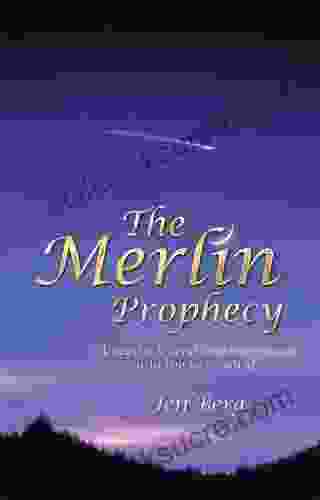
 Dennis Hayes
Dennis HayesMystic Legend and His Epic Crusade Into the New World: A...
The story of Mystic Legend is...
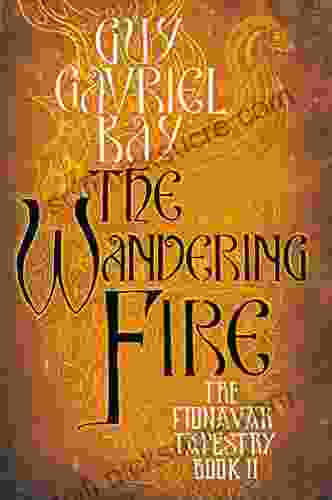
 Braden Ward
Braden WardThe Wandering Fire: A Captivating Fantasy Epic in the...
: A Realm of Enchantment and...

 Nathaniel Hawthorne
Nathaniel HawthorneStarstruck Brenda Hiatt: A Journey to Stardom
Brenda Hiatt's journey to...
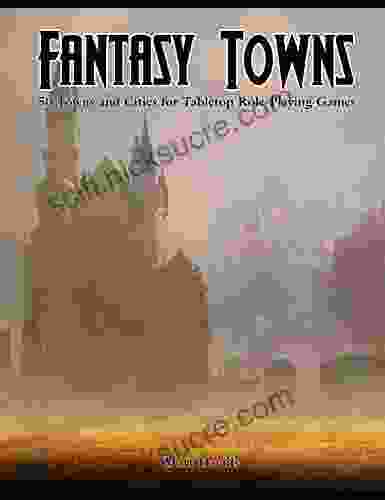
 Clark Campbell
Clark Campbell50 Enchanting Towns and Cities for Your Fantasy Tabletop...
Are you a dungeon master looking for the...

 W.B. Yeats
W.B. Yeats15 Natural Ways to Fix PCOS (Polycystic Ovary Syndrome)
Polycystic ovary syndrome (PCOS) is a hormonal...
4.4 out of 5
| Language | : | English |
| File size | : | 1106 KB |
| Text-to-Speech | : | Enabled |
| Screen Reader | : | Supported |
| Enhanced typesetting | : | Enabled |
| X-Ray | : | Enabled |
| Word Wise | : | Enabled |
| Print length | : | 556 pages |


